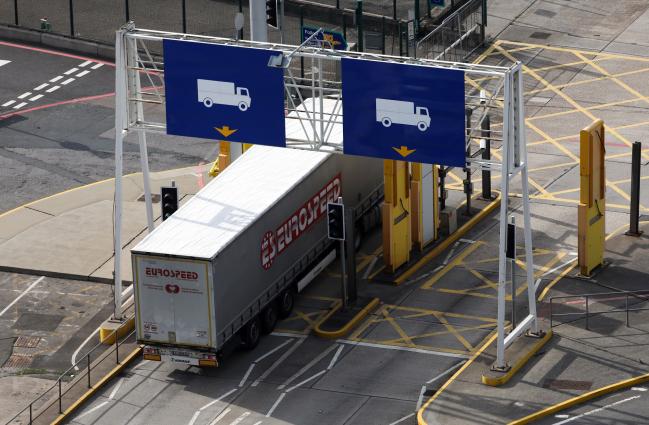(Bloomberg) -- Failure to reach a Brexit deal would wreak havoc on British business, especially manufacturers that rely on just-in-time supply chains.
That’s the view of Business Minister Richard Harrington, who in an interview on Tuesday defended the right of companies to openly voice their concerns.
“It would be completely disastrous for business in this country,”Harrington said. Four months after Prime Minister Theresa May outlined her vision for Britain’s future economic relationship with the European Union, “It’s quite right that business should be thinking well what’s happening now,” he said.
With Brexit day less than nine months away, Britain and the EU have yet to begin substantive negotiations on the shape of their future trade relationship amid Tory divisions over customs arrangements and how to maintain an open border between Ireland and Northern Ireland. May has convened a meeting of her top ministers for Friday at her country residence to thrash out a path forward.
Harrington’s remarks underscore the increasing influence of business in shaping May’s Brexit policy, with the prime minister now understood to be drawing up plans to keep the U.K. closely tied to European market rules for goods after Brexit.
Right to Speak
While May has repeatedly said that a no-deal Brexit must remain an option, large manufacturers such as Airbus SE and BMW AG last month broke cover to warn they’ll have to pull investment from Britain if barriers are put up to trade with the EU -- prompting criticism from senior Conservatives including Brexit-supporting Foreign Secretary Boris Johnson.
Lawmakers who criticize firms for going public with their worries “don’t really understand how business works,” Harrington said.
“I perfectly understand why Airbus and other companies who have so much invested in this country and employ so many people, are responsible for hundreds of millions if not billions of pounds of exports, of course they’re worried,” he said. “They’ve got every right to say that.”
Harrington pointed out that Japanese carmakers had been lured to Britain by former Prime Minister Margaret Thatcher, with the promise of access to the EU’s single market. He said he sympathizes with the concerns of companies like BMW, which manufactures the Mini car at a plant near Oxford in Central England.
What Advantage?
“There are parts that go on Minis that have been in and out of the country seven times before being assembled on a Mini,” Harrington said. “And the vast majority of the products are exported to the European Union. It’s very hard to see the advantage to businesses like that of us crashing out of the European Union.”
Some form of mutual recognition of regulations between the EU and U.K. is essential, so as not to damage industries including pharmaceuticals, carmakers, and aerospace, he said.
“It’s very difficult to see how multinationals could continue” in Britain if they had to comply with two separate regulatory regimes in order to keep exporting to the EU while servicing the domestic market, he said.
